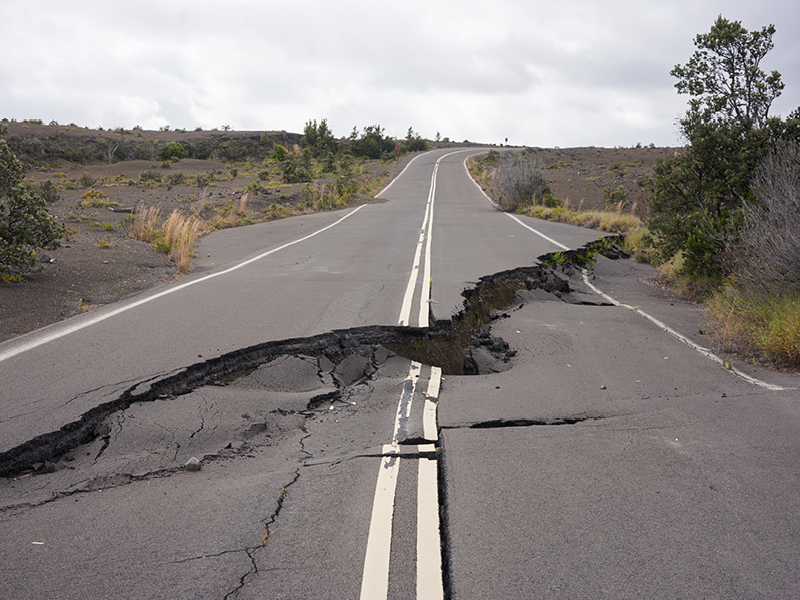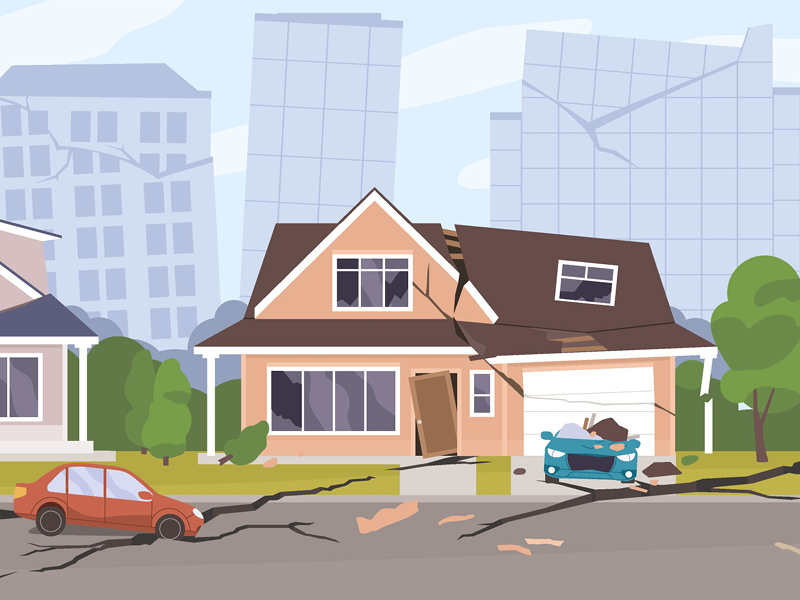During the week after the large earthquakes that hit Turkey and Syria, a large number of calls taken by us were to check insurance coverage regarding earthquakes.
Due to the number of calls, we’re writing this article to help everyone know how insurances in Israel view earthquakes and whether or not it is covered. This article is NOT written as a scare tactic so that people go and purchase policies, but rather for information purposes only. Each person should check their policies where relevant and consider what may be appropriate for each individual to consider.
HOME INSURANCE
In Israel, all policies are based on a standardised home insurance policy. EVERY policy (unless otherwise modified) will automatically include earthquake insurance built into it, unless one signed a declaration to opt out of this aspect of cover prior to each renewal.
The default option, which the vast majority of people with home insurance in Israel have, has the same deductible/excess (Hishtatfut Atzmit in Hebrew) for earthquake cover, irrespective of which company they are insured with. Unlike other insurable events where the deductible/excess will be a fixed sum according to each policy, earthquakes are treated differently.
With earthquake cover, the deductible/excess will be a percentage of the overall sum insured. The standard default deductible/excess on all policies (unless changed by the individual) is 10% of the overall sum insured.
If, for example, someone owns a property that they own or are renting out, and the rebuilt sum insured is 1,500,000 NIS, the standard deductible/excess will be 10% of this. i.e. 150,000 NIS. That means any damage up to 150,000 NIS will be on the homeowner. Cracks forming in the wall resulting from an earthquake costing less than 150,000 NIS to repair (in this example) will not be paid out.
In the event of a complete collapse of the building (g-d forbid), the insurance will pay out the total 1,500,000 NIS LESS the 10% deductible/excess, meaning that the actual payout on a total loss in this example would be 1,350,000 NIS.
Many companies can lower the standard 10% deductible/excess (common ones are 5% or 2%), meaning that in the above example. In the example above, the deductible/excess can be lowered from 150,000 NIS to either 75,000 NIS or 30,000 NIS for an additional premium.

Other things to consider/be aware of:
1) For high-rise apartments, one can choose to insure the market value and not just the more common rebuild value that many take. In a claim with a total loss, and where the building can not be rebuilt in a timely fashion, the insurance company will initially pay out the extra land value insured to alleviate any greater financial risk and dependency on uninsured neighbours. This would also provide some extra respite from the long timeframes needed to rebuild, which would be even longer than usual in a catastrophe of widespread damage such as an earthquake, not to mention higher costs due to demand.
2) The standard policies include an important clause that protects those living in their own home or renting out their property for UP TO A YEAR. The insurance will also pay out up to 15% of the total sum insured on the structure to provide a like-for-like accommodation when the property is deemed uninhabitable for an extended period. Alternatively, it will cover the loss of rental income due to the property likewise being deemed uninhabitable for an extended period. In the above example of a sum insured of 1,500,000 NIS, 15% of the sum insured equates to a maximum possible payout of 18,750 NIS per month, but no higher than the actual costs of renting a similar property or actual loss of rental income.
3) Contents insurance will likewise have the same earthquake coverage and deductibles/excess as per the explanation above for structure cover. However, it would not protect the costs of renting a new place for the tenants, only providing insurance on their belongings and not covering the structure. In this instance, one will stop paying rent and rent elsewhere, and the landlord will claim a loss of rental income through their policy.

CAR INSURANCE
Unlike home insurance, where the default option is for all policies (unless one opted out in writing) to include earthquake insurance, the vast majority of car insurance policies in Israel DO NOT include coverage for earthquakes.
For those with inexpensive old cars, this may be a risk one can take; however, for those with expensive cars or without the financial means to absorb this risk, one should check their policy to see if this is included or not.
Many people look for the cheapest policy, and certain price comparison sites will not let people know about the differences in the level of coverage and other potential shortfalls.
There are some agents (this is a policy we take) who, fortunately, will not sell a policy without this extra coverage. Often the difference is negligible in adding this and other significant aspects of cover; however, unfortunately, most people are unaware that their policy may lack cover in the hopefully hypothetical event of an earthquake. Likewise, most policies do not cover damage caused by riots, strikes and commotions. This too can and ought to be added by many.
SUMMARY:
For those who are unsure about their coverage, check with your agent to make informed decisions about what’s appropriate for each person.
Whatever decision is made in terms of cover, it should be for peace of mind only, with no need to make a claim for events that hopefully will not impact us or others in the future.





Pingback:harp
Pingback:Cafe
Pingback:jazz
Pingback:sleep music
Pingback:spa music
Pingback:healing music
Pingback:cafe bossa nova
Pingback:good morning jazz
Pingback:healing meditation
Pingback:gym playlist
Pingback:nature sounds
Pingback:cafe ambience
Pingback:cozy cafe
Pingback:meditation
Pingback:christmas coffee shop music
Pingback:soothing piano
Pingback:trap japan
Pingback:winter jazz music
Pingback:jazz piano music
Pingback:sleeping music
Pingback:relaxing piano music
Pingback:soothing relaxation
Pingback:outdoor coffee shop ambience
Pingback:study music
Pingback:italian cafe music
Pingback:ตู้เชื่อม
Pingback:Digital Marketing Agency
Pingback:เรียนต่อจีน
Pingback:ufa191
Pingback:weed in budva
Pingback:Superslot ใหม่ล่าสุด
Pingback:บุหรี่นอก
Pingback:คาสิโนออนไลน์ เว็บตรง มีระบบความปลอดภัยสูง
Pingback:sagame
Pingback:オンラインカジノ
Pingback:รถ6ล้อ
Pingback:lucabet
Pingback:ทัวร์ต่างประเทศ
Pingback:Massage
Pingback:Diyalaa
Pingback:Scienc1e
Pingback:789BET
Pingback:kamagra medicament nist prescrire
Pingback:buy enclomiphene generic australia
Pingback:price comparison androxal
Pingback:buy cheap dutasteride australia where to buy
Pingback:buying flexeril cyclobenzaprine cheap fast shipping
Pingback:discount gabapentin australia cheap
Pingback:buying fildena generic canada
Pingback:itraconazole from canada
Pingback:buy staxyn australia cheap
Pingback:buy avodart purchase singapore
Pingback:Cheap xifaxan for sale online no perscription required
Pingback:order rifaximin cost at walmart
Pingback:kupte si kamagra online bez lékařského předpisu